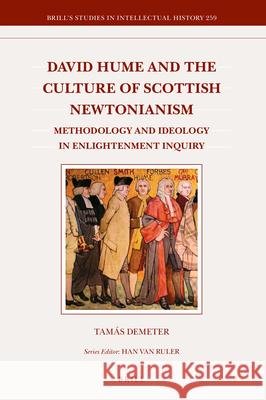David Hume and the Culture of Scottish Newtonianism : Methodology and Ideology in Enlightenment Inquiry » książka
David Hume and the Culture of Scottish Newtonianism : Methodology and Ideology in Enlightenment Inquiry
ISBN-13: 9789004327313 / Angielski / Twarda / 2016 / 224 str.
David Hume and the Culture of Scottish Newtonianism : Methodology and Ideology in Enlightenment Inquiry
ISBN-13: 9789004327313 / Angielski / Twarda / 2016 / 224 str.
(netto: 528,96 VAT: 5%)
Najniższa cena z 30 dni: 551,58 zł
ok. 22 dni roboczych.
Darmowa dostawa!
David Hume has a canonical place in the context of moral philosophy, but his insights are less frequently discussed in relation to natural philosophy. David Hume and the Culture of Scottish Newtonianism offers a discussion of Hume's methodological and ideological commitments in matters of knowledge as reflected in his language and outlook. Tamas Demeter argues that several aspects of Hume's moral philosophy reflect post-Newtonian tendencies in the aftermath of the Opticks, and show affinities with Newton-inspired Scottish physiology and chemistry. Consequently, when Hume describes his project as an 'anatomy of the mind' he uses a metaphor that expresses his commitment to study human cognitive and affective functioning on analogy with active and organic nature, and not with the Principia's world of inert matter.











